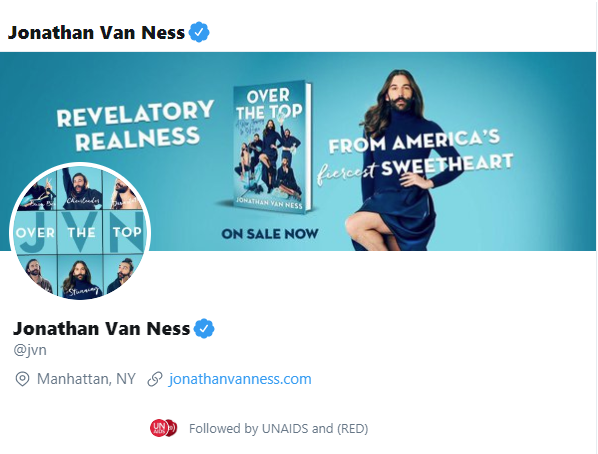Why Queer Eye’s Jonathan Van Ness’ coming out as HIV positive is a significant turning point in the fight against HIV and AIDS

I haven’t seen a single episode of the updated version of Queer Eye. You can’t avoid it, though. Since the show has been rebooted in 2018, the new cast stormed the Internet and even if I’m never seen the show, I know that it’s inspiring and transformative (my friends who watch it tell me so all the time) and I’ve become quite aware of the cast — most notably Jonathan Van Ness.
Earlier this week, promoting his memoir, Over the Top: A Raw Journey to Self-Love, Jonathan Van Ness revealed to Alex Hawgood for an article on The New York Times of his difficult early years, which includes drug addition, sex addiction, and an HIV diagnosis at 25. All of this and more are chronicled in the 32-year old television star’s memoir.
I started reading all the articles that came out of this revelation because this is big news for the PLHIV community.
Van Ness is part of a global phenomenon that has touched lives and changed people for the better. Queer Eye has four successful seasons in just two years with one special aired and another one special coming out in November.
Van Ness, on his own, is a force to be reckoned with as his own persona, outside of Queer Eye’s Fab Five, is social media ray of sunshine that spreads joy and positivity and hope wherever he goes. Anyone with a social media account and is connected in some shape or form to a member of the LGBTQIA+ community would know this. He’s a meme on his own and his persona is shared multiple times.
As I said before, I don’t watch the show but I know his cultural influence to the general public and I want to reinforce that this is an important step towards the advocacy.
Because, let’s face it, this is a celebrity-centered world and we need famous people at the forefront of the advocacy.
A Familiar Face
Over the past few years, we’ve had many PLHIV advocates who have made the rounds in television, radio, and articles in magazines and newspapers but while this was enough to make some noise, it has never really made an impactful change towards the attitudes on HIV and people living with HIV.
I am also including myself on this list. I feel confident that I’ve made some significant change to the people in my general vicinity. I’ve given an opportunity for my circles and my community to have a discussion about the virus amongst their friends and family. I’ve given them an avenue to have private discussions about their fears and general questions that they are afraid to talk about in public.
But this is only in my general vicinity. It’s one of the reasons why I try to be active on social media. Because visibility for PLHIVs count. Not just in creating awareness but also in removing the stigma.
Jonathan Van Ness, now that he’s come out as PLHIV, can serve as the visibility that is needed to show the world that people with the virus are still functioning members of society and that we can contribute to the community and be positive instruments of change.
Because of movies and television shows that focus on the drama, it creates an image of fear and death when it comes to HIV. But if people saw Jonathan Van Ness being all wonderful and fabulous on a show like Queer Eye then they might be able to change their mind about people living with HIV.
Visibility as an Instrument of Change
Visibility is important because when people can see that you can live a normal and meaningful life while HIV positive then people won’t be so scared to talk about it, to ask questions, and to take the test. These are key factors in removing stigma and in building healthier attitudes towards HIV prevention.
As long as PLHIV stay hidden and all that non-reactive people see about HIV are images of death and fear and shame through movies and television shows and news reports then people will always be scared.
Shows like Batang Poz and Posi+ive helped push the boundaries but, even as television shows, they ended and they are not without their dramatic moments.
A real person like Jonathan Van Ness, living out loud and fabulously, can change this by just being seen. And we need more of this, everyday. The more PLHIVs come out and show themselves, the more people’s attitude towards HIV will change.
Maybe better policies will be enacted because they can actually see the numbers and the people whose lives will be affected.
According to the latest Department of Health HIV registry released recently, there are a total of 68,401 total reported cases of HIV since 1984. That’s over 70,000 people. Most of them faceless, hidden, or invisible. This doesn’t mean anything to anyone.
But if you see your child’s teacher, or a police officer, or office accountant, or a person on television as a person living with HIV and having an okay life, then maybe you might think differently about it. Maybe you’d be more open minded when it comes to your friend or a member of your family.
Maybe it will help someone feel okay with having HIV.
Blood Makes Noise
Wanggo Gallaga


